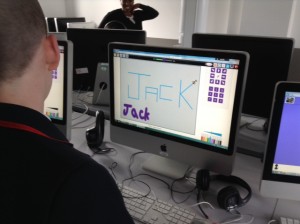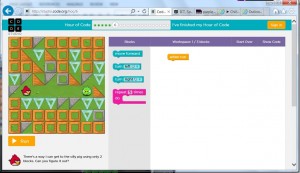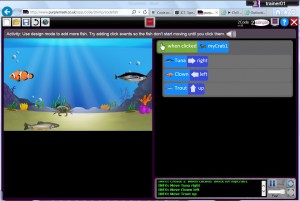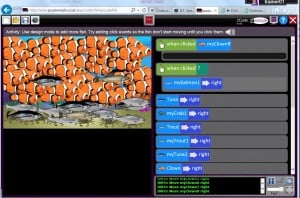Students from Langdon Park and Mulberry Schools are starting a ten week course in computer programming. To get started we thought about sequences and putting things in a logical, regular order that is always the same. Like you have to do in Line Up from Busythings. The Langdon Park group picked this up very quickly and took it in turns to put in the correct answer. The problems got harder using more colours and shapes, and changing the spaces that needed to be filled.
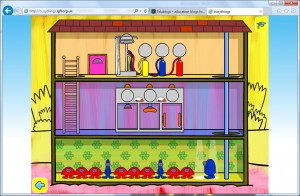
Once they had that cracked we moved on to an activity needing logical thinking. In Block-a-doodle-doo you have to move vehicles out of the path of the chicken in the green car who is the worst driver ever, carrying on in a straight line, banging into things, and expecting everyone to get out of the way. If the monster on the motorbike catches the chicken he eats him.
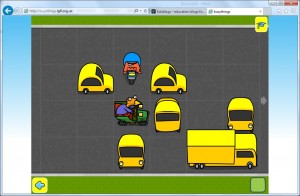
We talked about sequences in everyday life, things we do regularly without even realising we are following the same set of actions every time, like when we cross the road.
We went on to program a chicken to move through a maze picking up jewels on the way and avoiding monsters in Path Peril. This got harder and harder until there were five jewels and three monsters and no way to avoid them except by timing your moves right. It brought lots of laughs as the chicken got grabbed, gobbled and blown up.
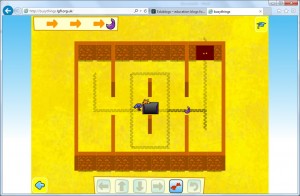
For the final activity we use J2Code and found the parking problem. Here a sequence of instructions is coded into a program to move a car from one parking bay to another. We watched as each line of code was run through then added and deleted lines to debug. We left the car park with several damaged cars!
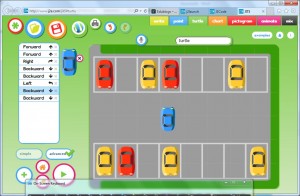
In our second session a week later we transformed one of our teachers into a Human Robot who only understood clear instructions: “Forward (x)” “Backward (x)” and “Turn right”, “Turn left” where X is the number of steps we wanted the robot to take. We had fun making the robot travel round the room and then describe some shapes.
Then we programmed the Mole to get the worm in the TES iboard activity Mole Maze We made it move one step at a time, then made a list of all the instructions before pressing Go. Remembering right and left was a bit tricky for some, especially when the Mole was facing downwards. We spent a very little bit of time remembering why we had to put “90” for a right angle, “180” for a half turn etc.
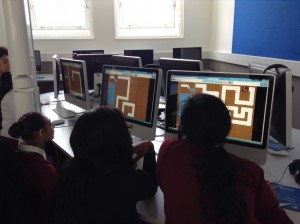 This activity comes with three levels and we all started on the easy level first.
This activity comes with three levels and we all started on the easy level first.
We logged onto Purple Mash and used 2Go to programme some letters and other shapes. 